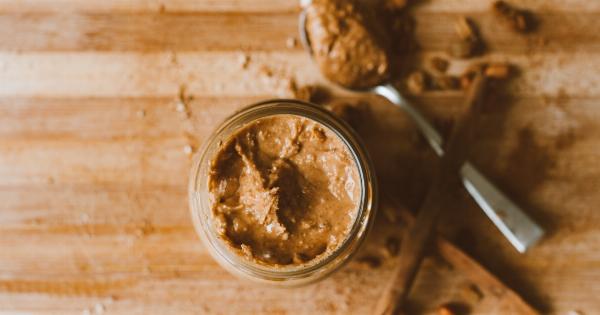Peanut butter has been a staple in many households for decades. It’s versatile, delicious, and can be enjoyed in a variety of ways.
But did you know that it’s also good for you? Peanut butter is packed with nutrients that provide numerous health benefits for your body.
Good Source of Protein
Peanut butter is a good source of protein, with around 7-8 grams of protein per 2 tablespoons. This makes it an excellent option for vegetarians and vegans who may struggle to get enough protein in their diets.
Protein is essential for building and repairing tissues in the body, as well as for maintaining healthy muscles, skin, and blood.
Packed with Healthy Fats
Most of the fat in peanut butter is the healthy unsaturated kind, which is good for your heart and overall health.
The monounsaturated and polyunsaturated fats in peanut butter can help lower your bad cholesterol levels, reducing your risk of heart disease and stroke. Eating peanut butter regularly could also help you lose weight, as research suggests that moderate-fat diets are more effective than low-fat diets for weight loss.
Rich in Fiber
Fiber is important for digestive health and can help prevent constipation, reduce inflammation, and lower your risk of chronic diseases such as heart disease, diabetes, and cancer.
Peanut butter is a good source of both soluble and insoluble fiber, with around 2 grams per 2 tablespoons.
Abundant in Vitamins and Minerals
Peanut butter is also rich in vitamins and minerals that our bodies need to function properly. Two tablespoons of peanut butter can provide up to 22% of your daily recommended intake of vitamin E, which is important for healthy skin, hair, and nails.
It’s also a good source of magnesium (which helps with muscle and nerve function), potassium (which regulates blood pressure and prevents heart disease), and zinc (which is essential for a healthy immune system).
Boosts Energy
Peanut butter is a good source of energy, thanks to its high concentration of healthy fats, protein, and fiber.
It provides a slow and sustained release of energy, making it an ideal food to eat before a workout or as a mid-afternoon snack when your energy levels start to dip.
Reduces Risk of Chronic Diseases
Eating peanut butter regularly has been linked to a reduced risk of chronic diseases such as heart disease, diabetes, and some types of cancer.
The monounsaturated and polyunsaturated fats in peanut butter can improve cholesterol levels and reduce inflammation in the body, both of which are risk factors for these diseases.
Helps Control Blood Sugar Levels
The healthy fats, protein, and fiber in peanut butter can also help regulate blood sugar levels, making it a good food for people with diabetes or those at risk of developing the disease.
Eating peanut butter with a low glycemic index carbohydrate, such as whole wheat bread or fruit, can also help slow down the absorption of sugar into the bloodstream, preventing spikes in blood sugar levels.
Conclusion
Peanut butter is a delicious and nutritious food that provides numerous health benefits for your body. It’s a good source of protein, healthy fats, fiber, and vitamins and minerals, making it an excellent addition to your diet.
Whether you spread it on toast, use it as a dip for apples or celery, or eat it straight from the jar, incorporating peanut butter into your daily routine can help improve your overall health and wellbeing.































